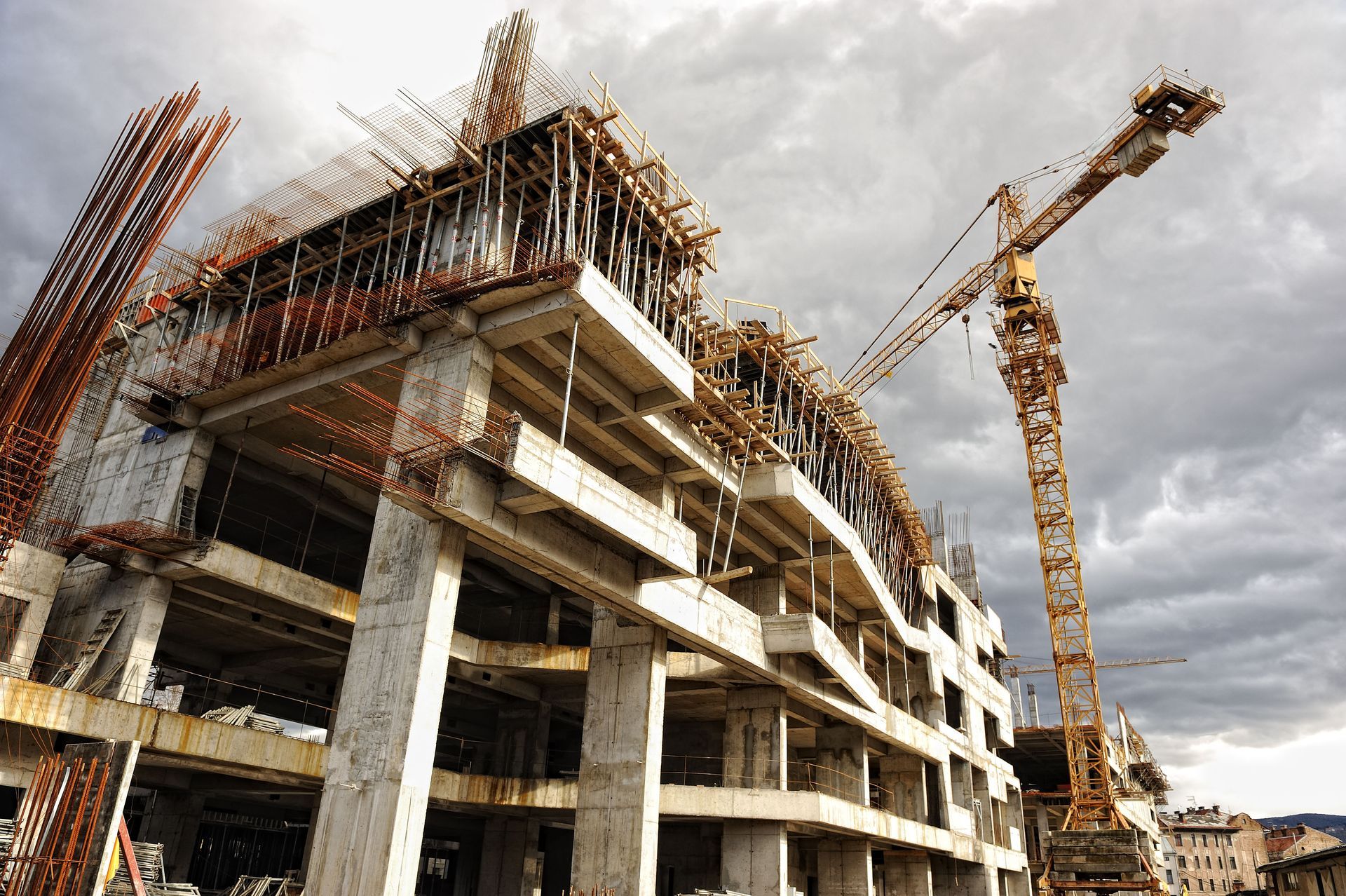October 21, 2025
In today’s fast-paced business world, selecting the right building contractors for commercial projects is critical for achieving long-term success. Companies undertaking construction, remodeling, or renovation projects need professionals who combine technical expertise, organizational skill, and strategic oversight. Building workers bring this experience to the table, ensuring projects are completed efficiently, within budget, and in line with both design and regulatory standards. By leveraging their knowledge and resources, businesses can avoid costly delays and maximize the value of their investments. Understanding how contractors manage every aspect of a project — from planning and materials to compliance and client collaboration — can help businesses make informed decisions and achieve optimal results. This article explores the key reasons why businesses consistently rely on building contractors, offering insights that can help commercial ventures thrive in a competitive landscape.
1. Leverage Expertise and Experience
Building developers possess extensive expertise that is vital for any commercial project. Their deep knowledge of construction techniques, materials, and industry standards ensures projects are structurally sound and visually appealing. Contractors can anticipate challenges before they arise and develop practical solutions, saving businesses both time and money.
Experience also equips contractors with the ability to create realistic timelines and budgets, keeping projects feasible from start to finish. They understand the nuances of local codes, zoning laws, and labor regulations, ensuring compliance and reducing the risk of legal setbacks. Working with experienced contractors allows businesses to benefit from tried-and-true methodologies that enhance efficiency and quality at every stage of construction. Additionally, contractors’ experience often extends to specialized commercial services, such as kitchen and bathroom remodeling, electrical rewiring, and property management services, enabling a comprehensive approach to diverse project requirements.
2. Deliver Comprehensive Project Management
Effective project management is central to the services building contractors provide. Contractors plan, schedule, and track every stage of construction with precision, often using advanced project management software to maintain organization and accountability. They set clear milestones, monitor progress, and coordinate resources to avoid delays.
Managing labor, materials, and subcontractors is another critical component of project management. Contractors ensure smooth communication among all stakeholders, oversee quality control, and maintain alignment with design specifications. This level of coordination guarantees that projects run efficiently, minimizing costly missteps while maximizing productivity. Building workers also excel at long-term planning, anticipating resource needs for both long-term and short-term projects, ensuring every commercial or residential renovation aligns with operational goals and deadlines.
3. Utilize Networks of Reliable Subcontractors and Suppliers
Building contractors maintain extensive networks of trusted subcontractors and suppliers, which streamlines project execution. These connections allow contractors to assemble qualified teams quickly, source high-quality materials, and access specialized skills when needed. Reliable partnerships reduce delays, improve workmanship, and maintain project momentum.
Effective material procurement is a major advantage, as contractors can source durable materials that meet both budgetary and design requirements. By leveraging these networks, contractors ensure consistent quality, timely deliveries, and smooth transitions between project phases, ultimately supporting commercial objectives. This is particularly valuable for complex projects, such as whole-house renovations or commercial remodeling, where multiple trades and precise timing are crucial for success.
4. Manage Risk and Ensure Compliance
Risk management is a critical service that building developers provide. They implement safety protocols to protect workers and reduce on-site accidents while ensuring adherence to local, state, and federal regulations. Contractors also handle inspections, permits, and certifications, facilitating smoother project approvals and avoiding legal complications.
Financial safeguards, such as insurance and bonds, protect projects against unforeseen events. Contingency planning and proactive problem-solving further enhance project security, giving businesses confidence that their investments are protected. With building contractors overseeing risk and compliance, commercial projects are completed safely, efficiently, and within regulatory standards. This reliability allows businesses to focus on growth and operations without being burdened by construction concerns.
5. Incorporate Innovative Technology
Technology plays a central role in modern construction, and contractors are quick to integrate the latest tools. Construction management platforms enhance collaboration, real-time progress tracking, and resource allocation. Technology also supports sustainable building practices, from energy-efficient systems to eco-friendly materials. By adopting innovative solutions, building contractors improve efficiency, reduce costs, and deliver forward-thinking projects that align with client goals. Additionally, modern tools allow contractors to monitor timelines, optimize labor usage, and forecast potential bottlenecks, ensuring projects remain on track from conception to completion.
6. Foster Effective Communication and Collaboration
Open communication between contractors and clients is essential for project success. Contractors establish clear channels to provide updates on timelines, budgets, and milestones, while encouraging client feedback throughout the process. This collaborative approach ensures expectations are met and allows for timely adjustments.
Contractors also act as mediators when conflicts arise, resolving disputes fairly to keep projects on track. Their communication skills foster a cooperative environment, ensuring that business objectives are prioritized and executed effectively. By maintaining transparency and responsiveness, contractors strengthen long-term client relationships. Collaboration extends to property inspections, code compliance checks, and maintenance services, allowing contractors to address client concerns proactively and implement improvements efficiently.
7. Enhance Property Value and Functionality
Investing in commercial construction or remodeling with skilled building contractors significantly enhances property value and functionality. According to Architectural Digest, around 84% of homeowners were more inclined to spend time in their upgraded homes after completing a remodeling project. Similarly, commercial upgrades improve operational efficiency, employee satisfaction, and customer experience.
Contractors bring specialized knowledge to areas. Their input ensures that renovations and new constructions are not only attractive but also practical and sustainable, providing long-term benefits for businesses. From garage, basement, and attic conversions to flooring, roofing, and exterior finishing, contractors ensure every project element contributes to both functionality and aesthetic appeal.
8. Provide Flexible Long-Term and Short-Term Solutions
Building contractors offer solutions for both long-term and short-term projects. Whether a business requires a full-scale new construction or targeted remodeling services, contractors adapt their strategies to fit project duration and scope. Long-term projects, such as commercial building construction, benefit from detailed planning, scalable resources, and strategic oversight. Short-term projects, like remodeling or repairs, rely on efficiency and rapid execution without compromising quality.
This flexibility allows businesses to pursue growth initiatives, renovations, or upgrades without disrupting operations.
Contractors align their services with company timelines and budgets, ensuring seamless integration into existing workflows. Services such as kitchen and bathroom remodeling, painting, drywalling, and door or window installation can be executed efficiently for short-term needs while still maintaining Long-Term value and durability.
9. Support Local Business and Community
Partnering with local building workers fosters stronger community ties while ensuring projects comply with regional standards and practices. In San Diego, CA and surrounding areas, licensed, bonded, and insured contractors offer reliable expertise that aligns with local construction requirements. Working with local teams also supports the regional economy and simplifies logistics, from sourcing materials to coordinating subcontractors.
By selecting local contractors, businesses gain the dual advantage of professional expertise and a closer, more responsive point of contact for project management, inspections, and ongoing maintenance. This proximity enables faster communication, immediate response to challenges, and better coordination for Long-Term and Short-Term projects.
The reasons businesses rely on building contractors for commercial projects are clear. From expertise, project management, and risk mitigation to technology integration, communication, and adaptability, these professionals deliver outcomes that enhance property value, efficiency, and long-term success. At E General Construction, we bring this knowledge and dedication to every project, ensuring our clients’ visions are realized with precision and care. Whether handling new home construction, commercial remodeling, or property management services, our team is committed to guiding businesses through the complexities of construction while delivering exceptional results. Contact us today to learn how we can bring your next project to life with skill, efficiency, and reliability.



